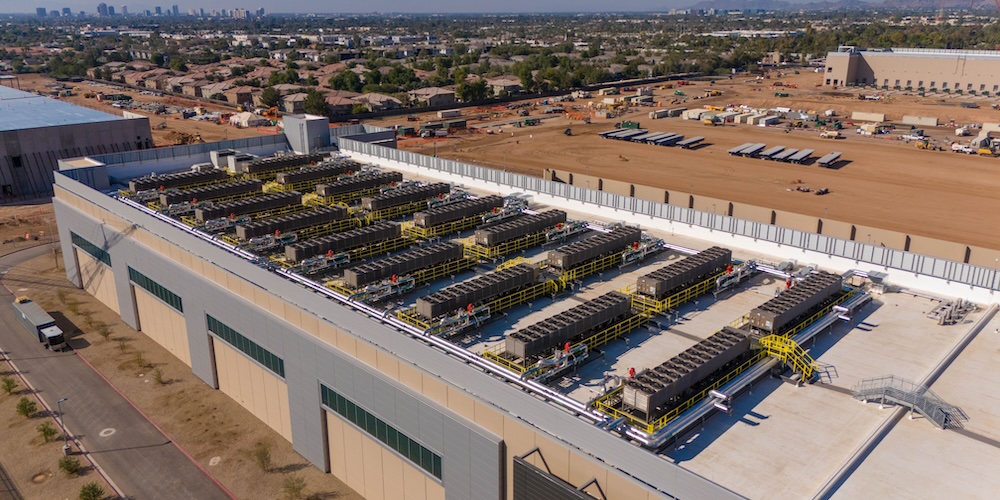— 5 min read
Construction Management Software: Essential Tools for Modern Building Projects
Last Updated Apr 28, 2025
Last Updated Apr 28, 2025

Today's construction projects face tighter timelines, rising costs, and increasing compliance pressures. Teams must juggle numerous variables while communicating across multiple job sites, making traditional tools increasingly inadequate. Fortunately, construction management software brings greater structure and visibility to every phase of a build, boosting productivity and reducing costs.
Table of contents
What is Construction Management Software?
Construction management software centralises key project functions - including scheduling, cost tracking, document control, and resource management - into one integrated system. These digital solutions streamline planning, execution, and administration of construction projects, helping teams work more efficiently and transparently.
From coordinating tasks on a single site to overseeing multiple stakeholders across large-scale developments, these tools enable faster decision-making and clearer oversight. Moreover, most systems offer cloud-based, mobile-friendly access, supporting office-based and on site users with real-time data to deliver projects on time, on budget, and to specification.
Core Features That Transform Project Delivery
Construction management software provides a centralised platform to oversee every aspect of a project's life cycle. These tools help stakeholders coordinate efforts, reduce manual tasks, and maintain real-time visibility across sites through several key features:
Project Planning and Scheduling
Create detailed project timelines, assign tasks, and track milestones. Features like Gantt charts identify dependencies, prevent clashes, and keep projects on track.
Budgeting and Cost Control
Monitor budgets in real-time, forecast costs, manage purchase orders, and flag potential overruns before they impact delivery.
Document Management
Access a single hub for drawings, plans, specifications, contracts, requests for information (RFIs), and change orders. Version control ensures everyone works from the latest information, reducing errors and rework.
Communication and Collaboration
Share real-time updates between site teams, office staff, subcontractors, and stakeholders. Shared dashboards and comment threads speed up approvals and prevent miscommunication.
Resource Management
Track labour, materials, and equipment efficiently. This helps teams allocate resources effectively and avoid scheduling conflicts or downtime.
Risk Management
Identify and address risks early in the project life cycle. Built-in tools monitor compliance, flag safety concerns, and enforce quality standards.
Mobile Access
Access project data, submit updates, and upload site photos directly from the field through mobile apps or cloud-based portals.
Reporting and Analytics
Generate dashboards and custom reports based on live project data to support faster decision-making and highlight performance trends.
Integration Capabilities
Connect with other systems, such as accounting tools, BIM models, or estimating software, to improve data flow across the organisation.
Field Productivity Tools
Track workforce productivity and manage tasks based on site location for granular insight into real-time ground operations.
Benefits of Construction Management Software
Adopting construction management software transforms how teams plan, collaborate, and deliver projects. The benefits extend throughout the project life cycle:
Project Management Advantages
- Improved Scheduling: Build realistic schedules, assign tasks, and monitor progress in real-time to spot potential delays early.
- Enhanced Collaboration: Centralise communication between office teams, site personnel, subcontractors, and clients to speed up decision-making.
- Streamlined Document Control: Give all stakeholders access to the latest drawings, specifications, and reports through a shared platform.
- Precise Cost Management: Track budgets accurately, identify potential overruns, and make timely adjustments before costs escalate.
- Optimised Resource Allocation: Deploy labour, equipment, and materials more effectively by maintaining a clear view of available resources.
Efficiency and Productivity Gains
- Automated Workflows: Reduce manual input and paperwork, helping teams move faster with fewer errors and clearer accountability.
- Data-Driven Decisions: Respond quickly to issues and make informed decisions using real-time data and project insights.
- Fewer Disputes: Standardise documentation and processes to minimise miscommunication, change order issues, and contractual disagreements.
- Proactive Risk Handling: Address safety concerns, potential delays, and quality issues before they escalate.
- Seamless Communication: Keep everyone informed regardless of location through instant updates and mobile access, strengthening collaboration across the board.
Software Types to Meet Specific Needs
Construction management software comes in various forms to address different requirements. Understanding these options helps organisations select the right tools or consolidate systems into a unified platform:
All-in-One Systems
Combine scheduling, budgeting, quality assurance, and communication in a single platform. This approach particularly benefits UK projects that must meet requirements under frameworks like the Construction Playbook or NEC contracts. These systems also support consistent reporting to meet Construction Design and Management (CDM) Regulations and guarantee traceability throughout the project lifecycle.
Project Management Tools
Coordinate day-to-day activities and track progress against milestones, especially valuable for UK public-sector and infrastructure projects.
Estimating Applications
Support accurate cost planning and competitive bidding, ensuring transparency aligned with UK public procurement rules.
Field Service Management
Enable site teams to manage tasks, log completed work, and report issues, while supporting compliance with health and safety requirements.
Financial Management Software
Handle invoices, subcontractor payments, and budget reporting to demonstrate accountability for VAT records, retention sums, and project cash flow.
Document Control Systems
Store plans, permits, and correspondence securely, supporting building information modelling (BIM) and the Golden Thread requirements under the Building Safety Act.
Safety Management Software
Manage inspections, incident reporting, and compliance audits to meet Health and Safety Executive standards.
Who Benefits From Construction Management Software?
These digital tools serve stakeholders across the industry, helping each manage their responsibilities more efficiently:
- General Contractors: Oversee the entire build process, reduce paperwork, improve oversight, and ensure projects meet contractual obligations.
- Subcontractors and Specialty Contractors: Improve communication, maintain task visibility, and report progress without delays through real-time updates and mobile tools.
- Project Managers: Track timelines, manage risks, allocate resources, and report on progress using live dashboards.
- Architects and Engineers: Share drawings, respond to RFIs, and review changes while maintaining design intent through centralised document repositories.
- Owners and Developers: Gain greater visibility into project performance, timelines, and costs to make more informed decisions, particularly for large or multi-phase developments.
- Administrators: Manage documentation, track approvals, maintain audit trails, and support compliance throughout the project life cycle.
The Future of Construction Management
Construction management software has become indispensable in today's building landscape. By connecting planning, communication, budgeting, and reporting in one system, these digital tools reduce risk, boost efficiency, and keep teams aligned from start to finish.
As the industry evolves, adopting the right digital tools is no longer optional but necessary. The right platform doesn't just support better project outcomes - it empowers teams to achieve greater productivity, experience fewer delays, and deliver projects more cost-effectively.
Categories:
Financial Management, Project Management, Resource Management, Risk Management, Tech and Data
Tags:
Written by
Nicholas Dunbar
33 articles
Nick Dunbar oversees the creation and management of UK and Ireland educational content at Procore. Previously, he worked as a sustainability writer at the Building Research Establishment and served as a sustainability consultant within the built environment sector. Nick holds degrees in industrial sustainability and environmental sciences and lives in Camden, London.
View profileZoe Mullan
Zoe Mullan is an experienced content writer and editor with a background in marketing and communications in the e-learning sector. Zoe holds an MA in English Literature and History from the University of Glasgow and a PGDip in Journalism from the University of Strathclyde and lives in Northern Ireland.
View profileExplore more helpful resources

Building for Big Data: An Industry-Wide Challenge to Innovate
The demand for innovative and efficient data centres is skyrocketing. From powering cloud computing and the exponentially growing use of artificial intelligence to supporting the ever-growing internet of things (IoT),...

Building the Ideal Project Team for Data Centre Construction
The digital age has ushered in an era of unprecedented data consumption, fuelling a seemingly insatiable demand for data centres. These complex facilities are driving a construction boom, placing immense...

Construction Scheduling: An Essential Guide
Every successful construction project begins with a solid plan, and at its core lies an effective construction schedule. From breaking ground to final handover, staying on time and within budget...

Gantt Charts: Visual Roadmaps for Construction Success
In the complex world of construction, even well-planned schedules can quickly slip. From overlapping trades to shifting delivery dates, the best-laid plans often unravel. This is precisely why construction Gantt...